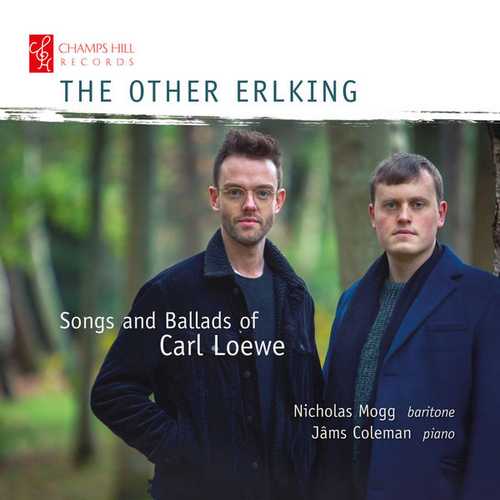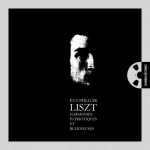

Composer: Carl Loewe
Performer: Nicholas Mogg, Jâms Coleman
Format: FLAC (tracks)
Label: Champs Hill Records
Catalogue: CHRCD165
Release: 2021
Size: 933 MB
Recovery: +3%
Scan: cover
01. Tom der Reimer “Der Reimer Thomas lag am Bach”, Op. 135a
02. Nachgelassene Gedichte, Op. 69: No. 6, Der Komet
03. Die Uhr, Op. 123 No. 3
04. Der Erlkönig, Op. 1 No. 3 (Goethe)
05. Die wandelnde Glocke, Op. 20 No. 3
06. Edward, Op. 1 No. 1 (Herder)
07. Uber allen Gipfeln ist Ruh
08. Der du von dem Himmel bist
09. Der Hirt auf der Brücke, Op. 130, 4
10. Spirito Santo, Op. 143
11. Odins Meeresritt “Meister Oluf, der Schmied auf Helgoland”, Op. 118
12. Süßes Begräbnis, Op. 62 No. 4
13 .Heinrich der Vogler, Op. 56 No. 1
14. Ich bin ein guter Hirte
15. Die Mutter and der Wiege
16. Gesammelte Lieder, Gesänge, Romanzen und Balladen, Op. 9 H. IX: II. Der alte Goethe
17. Herr Oluf “Herr Oluf reitet spät und weit”, Op. 2 / 2
Nicholas Mogg and Jâms Coleman explore the remarkable versatility of Carl Loewe in a new release for Champs Hill Records. The Other Erlking sheds a deserved light on Loewe’s less well-known songs and astonishingly arresting ballads, and is the first Loewe album recorded by UK performers. Many of Loewe’s ballads form part of the regular Lieder repertoire, but less known and equally deserving are the lyrical Lieder of Frauenliebe, and settings of such poems as ‘Über allen Gipfeln ist Ruh’’ and ‘Der du von dem Himmel bist’ which rival those versions by Schubert, Schumann and others.
Loewe has been referred to as ‘the north German Schubert’, a description apparently given to him by Prince Albert in London in 1847. The album takes its name from comparisons with Schubert’s Erlkönig, which Mogg and Coleman performed together in concert: ‘We have introduced many audiences to Loewe using a comparison with Schubert’s Erlkönig. While Schubert’s setting is without doubt exhilarating, we were struck by the way Loewe conjured different moods through his choice of colour. It is our hope that this album will show the remarkable versatility of Loewe and encourage exploration of his less well-known works.’



